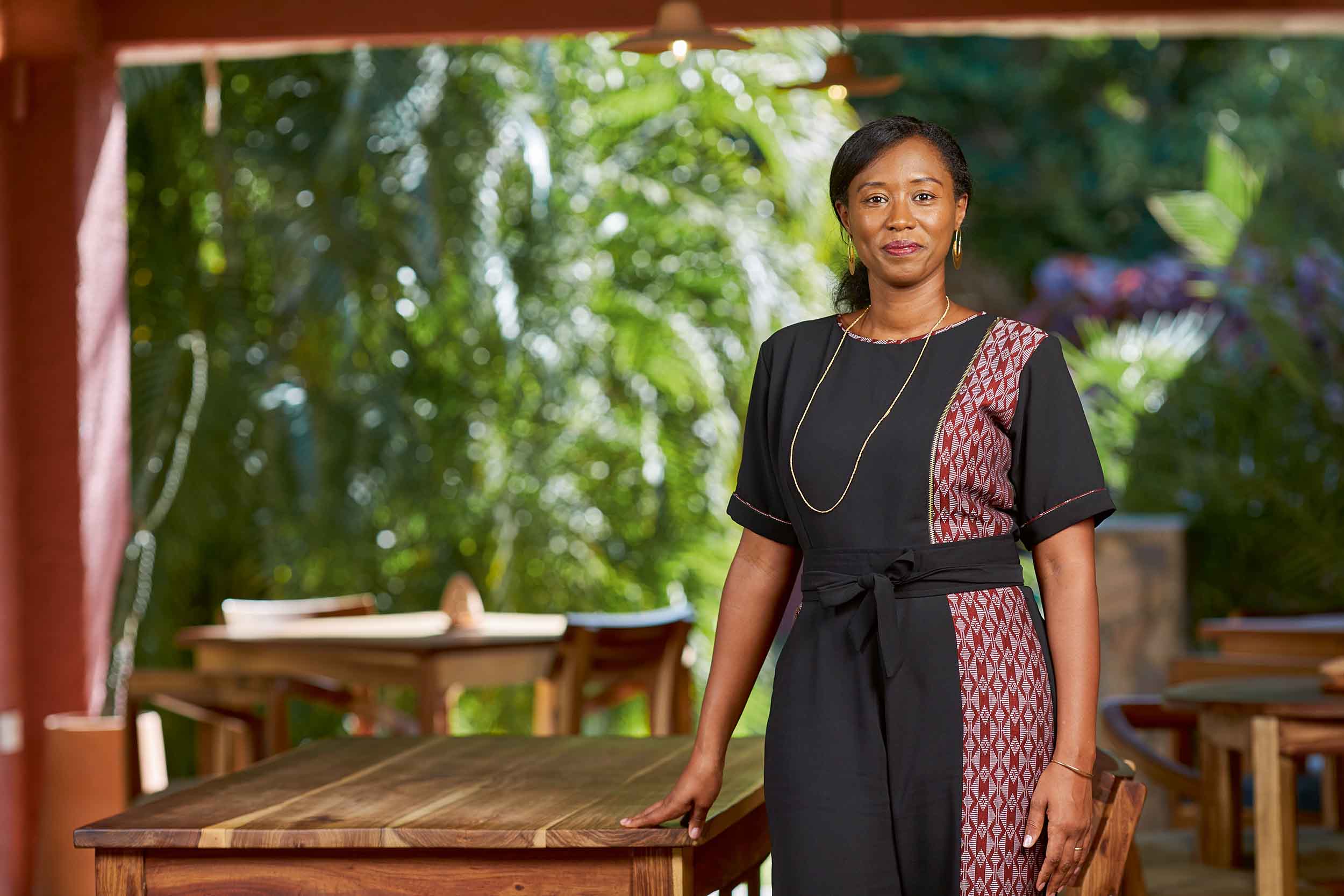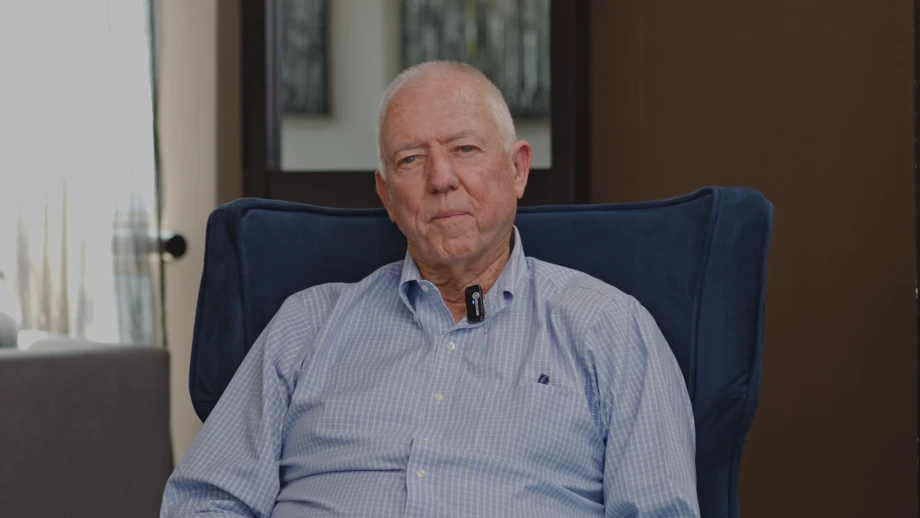With her life as a corporate lawyer far behind her, Monica Musonda is one of Zambia’s leading entrepreneurs. Here Monica shares what the journey has been like since she took the plunge and ventured into business for herself.
As a child, Monica Musonda never imagined that she would become an entrepreneur or a business owner. Fast forward to 2012 and Monica was on a completely different path than she had imagined, making plans for a bigger factory, a bigger fleet of trucks and more people working at Java Foods. As the founder and CEO of Java Foods, known for manufacturing the country’s leading noodles brand (eeZee Noodles), Monica believes that this is exactly where she is meant to be.
Sitting in her office at the new stand-alone Java Foods factory, Monica says that she believes it’s time for her to break away from the ‘Dangote Cement corporate lawyer turned entrepreneur’ narrative so many people know her for. In fact, it’s overdue. “It’s a good story but there’s so much more that has happened since then that needs to be acknowledged and spoken about,” she expresses. I’ve come a long way from sitting in one room selling an unknown product on the Zambian market with only six employees. After eight years Java Foods now makes three beloved products, is 50 people strong and is proudly Zambian.
Coming from a family where her parents were all about job security, it’s a wonder that they were supportive of her globetrotting legal career. According to Monica, her father always said, “There is them and there is her.” As long as she could make sense of why she had to move jobs and countries and help them understand that, then she had their full support. She chuckles while saying, “I made some pretty crazy moves. I’ve worked in the UK, moved to South Africa where I didn’t know anybody, then to Washington to work for the IFC and finally to Nigeria.” Any parent would be wondering, “Why can’t you sit still?” she muses. Monica didn’t let fear stop her from taking chances. “If I want to work and I want to grow I have to shake off the fear and take the leap. I’d encourage everyone to try,” she says.
On how she stood out in a cut-throat industry working in highly competitive economies, Monica attributes her success to hard work, ensuring she stayed relevant, and front of mind within her network. “I don’t think it’s necessarily about me more so than my network. It’s because I was confident, good at what I did and also because I had good referrals that the doors opened to prove myself. And I did prove myself. One thing to never discount even when you’re the smallest person in the room or just climbing the ladder is to respect others, be useful and be relevant that even if you’re just writing notes at a meeting people will always remember you.”
Coming back home from the diaspora isn’t always smooth sailing. Additionally, some returnees have their fair share of reverse culture shock. Your friends have moved on and sometimes your family perceives you in the same light as they did before you left. Monica faced a number of challenges despite finding success when she returned home.
Having worked in Zambia for only a short time at the beginning of her legal career, Monica found herself building contacts from scratch in a new industry when she came back home. On this experience she says, “I struggled to get industry-specific advice in manufacturing because there were very few Zambians I could call on in the space in 2012. Fortunately those that have been in manufacturing for a long time were very supportive and still continue to offer advice and assistance. They answer questions like how to bring a boiler into the country and what type of truck to use. When I was just starting out it was questions like how to get a trading license or the steps to pass a health inspection and so much more.”
Transitioning from lawyer to entrepreneur in food manufacturing has been interesting because of the different personality requirements for the two jobs. “I’ve had to shift from a corporate lawyer mentality to a service first mentality because when somebody stops you in the supermarket to give feedback, either negative or positive, you have to stand there and listen and thank them. Our customers are the everyday people, from the mother just looking to feed her children to a student trying to manage their budget at school. I’ve had to learn a lot about how to talk to people when they have a complaint about our products or a compliment and how to appreciate that.”
When I tried to skirt around the gender question, Monica was adamant that it absolutely must be addressed. She told me, “Speaking from personal experience, women still have to work harder to get ahead. Even at my level, a business owner and the chair of listed companies, I’m sometimes spoken to as though my opinion doesn’t matter or I cannot know this or that answer. It’s painful to be treated that way especially when you know that you have worked very hard to get a seat at the table.”
Having said this, Monica believes Zambia is relatively progressive in the sense that families generally support the education of both their sons and daughters. However, she laments that, “Sadly some women aren’t hired because it is assumed that they will fall pregnant and this will impact on their work. That’s the most unfair thing because falling pregnant is natural for a woman.”
Monica is a mother and of that experience she tells me, “The priority is definitely my daughter and so I have deliberately changed the way I work in order to spend more time with her. It is definitely not easy running a business and being a mum – both require attention but when it comes down to it, family is always first.
Continuing with the topic of work life balance, Monica said it is something that she has found difficult to achieve. It is something she’s still learning and she has embraced her shortcomings by getting a professional coach. “I never thought that I needed a personal coach until one of my shareholders suggested it. There’s been a lot going on from COVID-19, ensuring Java Foods continues to run, taking care of 50 employees and their families and making sure they are safe and juggling my own priorities. As a business leader all this keeps me up at night and I needed to come up with a survival strategy in the chaos. Self-care should always come first when it comes to work-life balance. You’re no use to anyone when you’re sick.”
This is what a day in the life of Monica Musonda looks like: 7am wake up, get to office at 8:20am, board committee meeting call at 9am, Java shareholder financial call at 10am, then Nkwazi interview and attending to emails and 12pm to 3pm for administration of the business. Monica admits that running a business has been a lot harder than she assumed and every year there’s a crisis from managing depreciation to the mother of them all, COVID-19. “In the early years of a start-up, it’s the founders head and purse on the line but as the business grows then it becomes a team effort. If it’s a cash flow issue then you’re hoping to hear for a solution from the finance team and you’re there to say that makes sense. That’s the only way to grow the business where we move away from making everything about the founder.”
Monica remains optimistic despite the challenges that COVID-19 has brought. The next step for Java Foods is to start exporting its current products into the region and looking to producing other nutritious foods products. With the commissioning of a bigger factory, Java Foods under the capable leadership of Monica Musonda is conquering new heights in the Zambian manufacturing industry.








